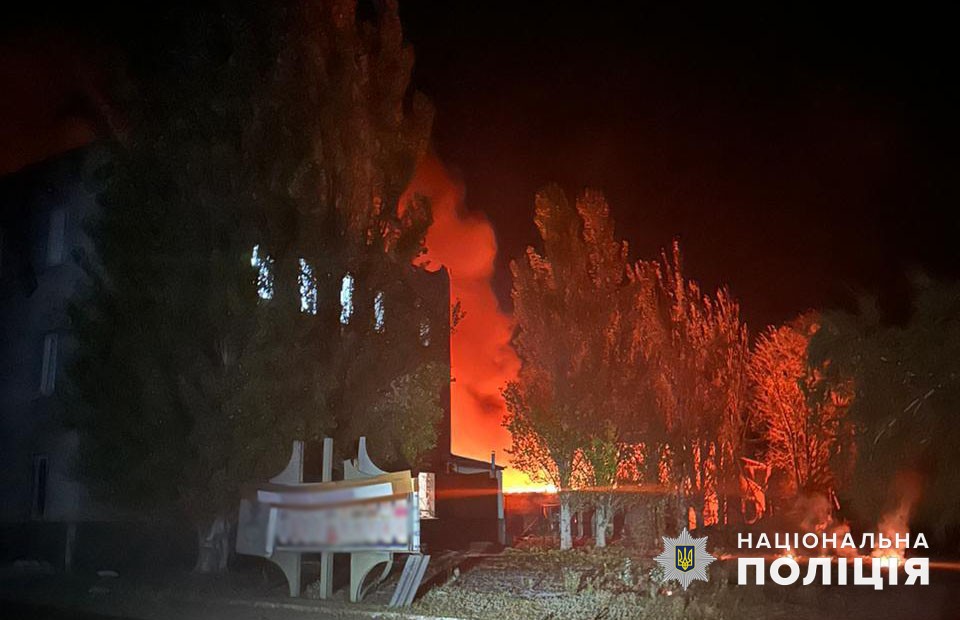Head of the Ministry of Internal Affairs: revolutionary changes await service centers with transparent exams for driver's licenses

In the interview, the Minister told how the Ministry of Internal Affairs works now, what transformations will take place in the ministry's services, about hopes for the “Guard of Offensive”, about weapons today and after the war. And also — about people-centeredness, which will give a future to every fighter and the whole country as a whole.
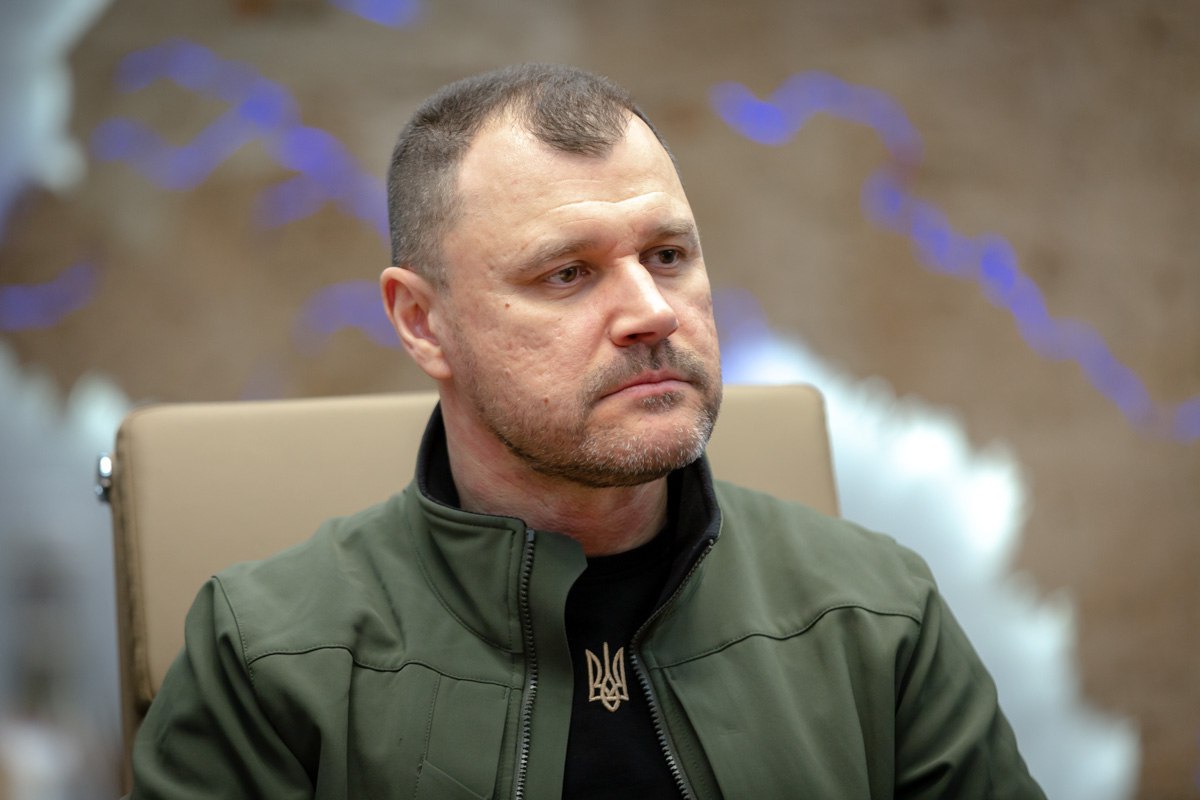
You have been the head of the Ministry of Internal Affairs for almost three months. During this time, was it possible to understand the approaches in the work of each structural unit of the ministry, decide on key tasks and get rid of the association only with the National Police?
The National Police, the State Emergency Service and border guards are approximately the same in number. As head of the National Police, I cooperated with all the services. Today - I delve into more detailed and in-depth problems of the work of a particular service, taking into account the challenges of war.
In organizing the work of the police takes a lot of time, but we have many common tasks that are solved by all the services of the Ministry of Internal Affairs. Therefore, there is no question of who to devote more time to, there is a question only in the systematic work of the entire huge department, which numbers about 400 thousand people.
The main thing that stabilized the control center, managed to keep the ministry. Today, I think we have already started our planned work.
Are personnel appointments already completed and is it possible to talk in general about updating the staff of the department?
We have appointed virtually all managers and personnel. They left the best, strengthened by specialists from other ministries and departments.
We have one task at the moment: to fulfill the tasks facing the state, the ministry, involving professional people.
The apparatus of the ministry itself is updated by about 40%.
Are they people you trust?
Of course.
And what about the appointment of the head of the National Police? When can this happen?
In the near future.
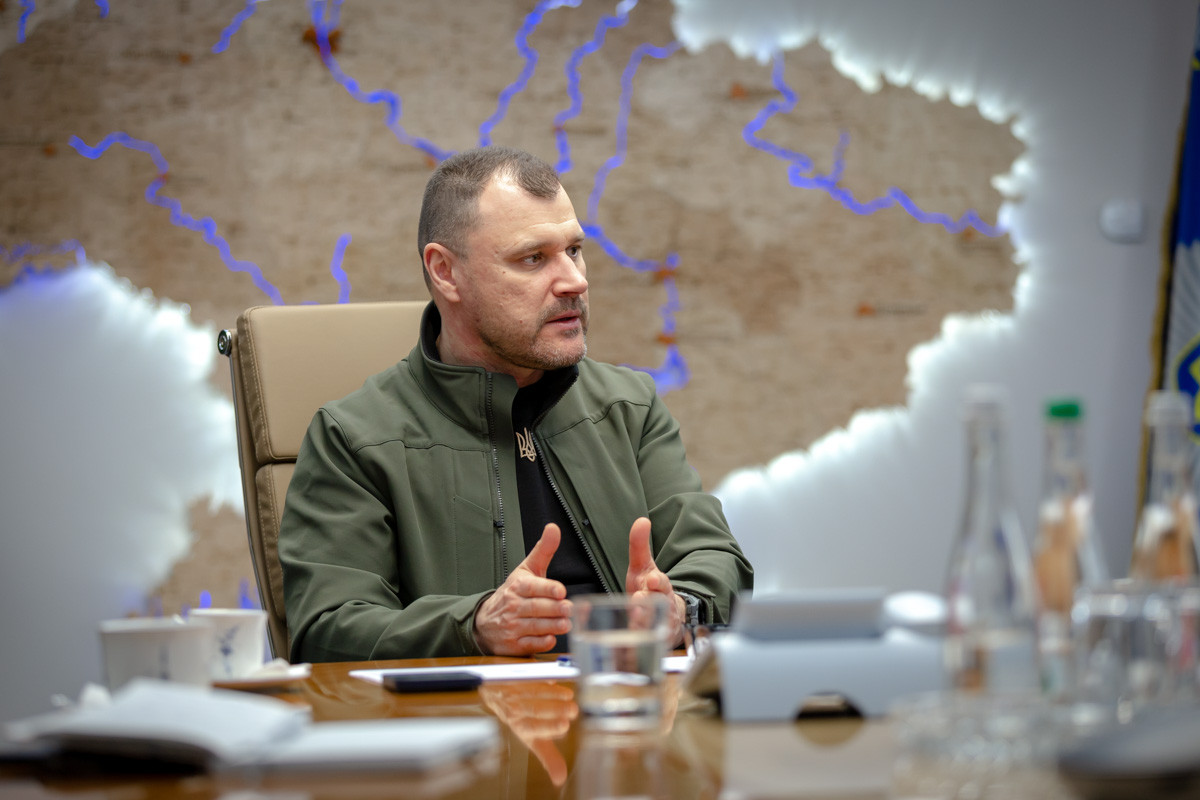
“Guard of Offensive” became the main project of the Ministry of Internal Affairs with your arrival as the head of the ministry and received the support of society. Is the process of forming brigades finally completed?
Brigades are fully formed. This is 8 brigades. We have plans to form additional brigades, because there is demand for it, and we have opportunities.
We rearm the brigades that have already been formed, they will undergo appropriate training - this is 2-3 weeks - and in parallel we begin to form additional units.
The task of each of these brigades is to conduct appropriate offensive assault actions together with the Defence Forces during military operations.
The role of people who volunteered in brigades will be significant in the counteroffensive, I understand?
Of course. That's how we teach. Because on each brigade, on each unit, on each soldier and policeman, the success of the operation in one direction or another will depend.
Were the units formed from scratch or already on the basis of existing ones?
In different ways. Some units were formed from scratch. There were also already existing units with an established structure, first of all, logistical. In such cases, the “costume” brigades for success were formed precisely from servicemen and policemen with combat experience. These people are just teaching volunteers — young people who first came to the ranks of the brigades. Also, experienced fighters act as commanders in the fields of activity and in the future conduct of combat operations.
It is difficult to train a commander - it is always a long time, and he is limited with us, so we relied on personnel with combat experience and experience in managing units.
What is the total number of brigades?
I can't say about security. I think that, if desired, it is theoretically possible to calculate the approximate number.
Are they already under the command of the Armed Forces?
No, they come under the command of the Defense Forces after there is a combat mission.
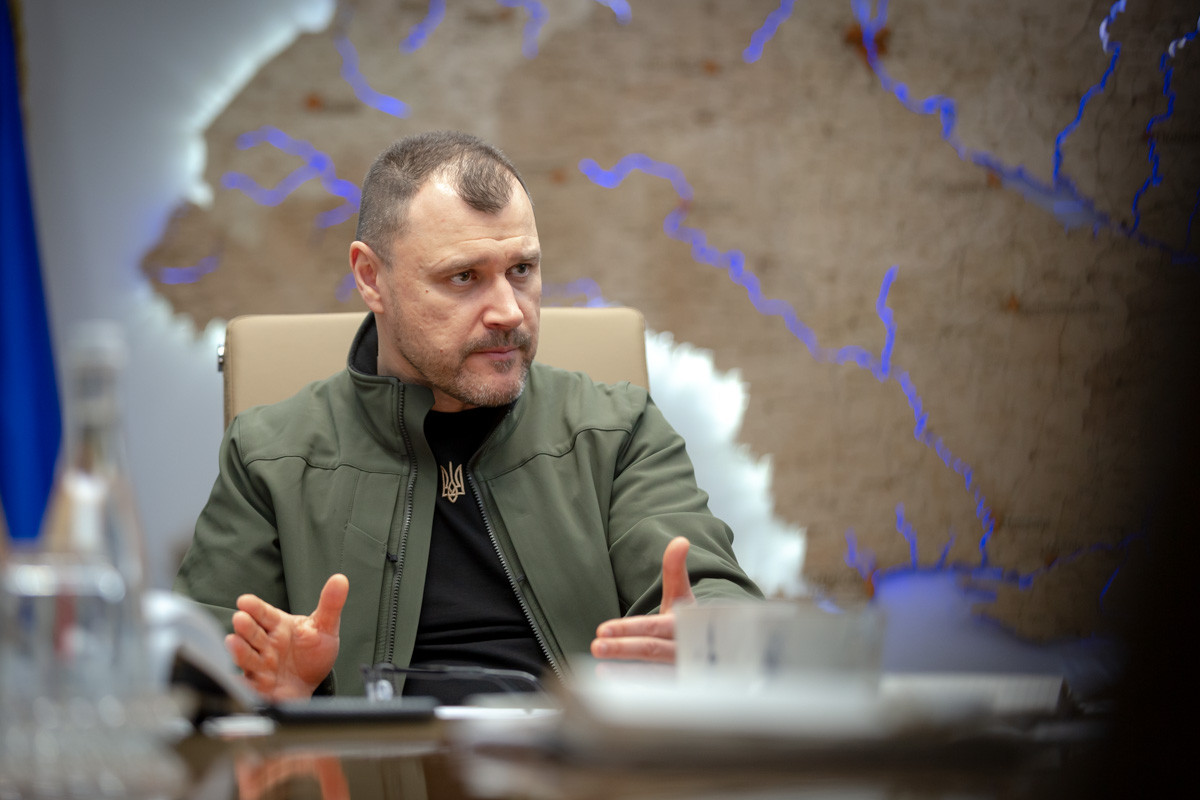
What projects started by the former leadership of the Ministry of Internal Affairs are currently being implemented?
All projects that the former management worked on and we, too, have the right to life and will be implemented. Of course, with the adjustments that the war makes.
No project started earlier, we have not addressed, we can only modernize.
I want to ask about the Unified Register of Weapons. You said it would work at the end of June. Tell me in more detail, what practical benefits will it have?
What does gun accounting look like today? These are large piles of paper in the permit system, piles of paper from business entities, expert services.
We want Ukrainians to be comfortable using electronic services. Each citizen will have his own electronic account with full information about his weapons, about the timing of re-registration, about checks, sales marks. And when buying weapons, you can choose and order, without going to either the departments of the permit system or the store. That is, the system of buying and selling weapons will be simplified as much as possible. We also minimize possible corruption risks regarding the purchase and registration of weapons.
The main thing, and this is our goal, is that all the weapons that are in the hands of our citizens - and this is 1 million 300 units today, without a trophy - be in this register. Likewise - all the new weapons that will enter our state.
As I said, it will be convenient for citizens who own weapons. The Register will also help the law enforcement system to control the distribution of weapons.
Business entities will be able to bring to this base all weapons that are in warehouses and sold. In the largest weapons stores in warehouses there are about 70 thousand units of various types of weapons.
We have announced the launch of the Unified Registry on June 23, 2023. In a few weeks we are already running it in a test version.
Also now with the people's deputies, and the state leadership supports this - we are developing amendments to the law on national resistance. And here we are talking about those weapons that are already in the hands of our citizens.
The weapons that were registered with us will be the first to go to the Unified Register: the so-called trophy weapons that came from the front, and weapons that otherwise fell into the hands of our citizens. For example, the one that fell to our military or citizens after Russian shelling of certain objects.
We want all these weapons right now to be simply registered with the police, they will be returned to citizens before the end of the martial law.
That is, we understand that there are a lot of weapons in our hands, the main thing for us is to account for them.
The grenades will not be returned to the people?
No, they won't. This is an increased danger. Whoever finds the grenade must hand it over. A clearly defined list of weapons and ammunition that cannot be in the hands of citizens. These are, for example, grenade launchers, mortars, the same grenades.
What will happen to the weapons that are in the hands of the Ukrainians, after the end of the martial law?
After the end of martial law, weapons will be the property of the state. Then a period of, I think, a few months will be determined, during which every citizen must bring a weapon to the police or to business entities, hand it over or sell it to the same entities, or dispose of it or recycle it into an authorized weapon, a hunting carbine, for example.
What is the situation with the bill on civilian weapons?
We are still working on the law on the circulation of civilian weapons, there is a lot of discussion.
We must understand that everything must be done to ensure that Ukrainians feel safe.
Returning a sense of security after the war to our citizens is the first thing that the state and the system of the Ministry of Internal Affairs should do.
For this purpose, weapons must be accounted for, controlled and the rules for carrying or using them must be clearly spelled out.
I will clarify: all weapons issued at the beginning of the war to people are accounted for, is everything okay with this?
So, all weapons that were issued by the Ministry of Internal Affairs are fully accounted for.
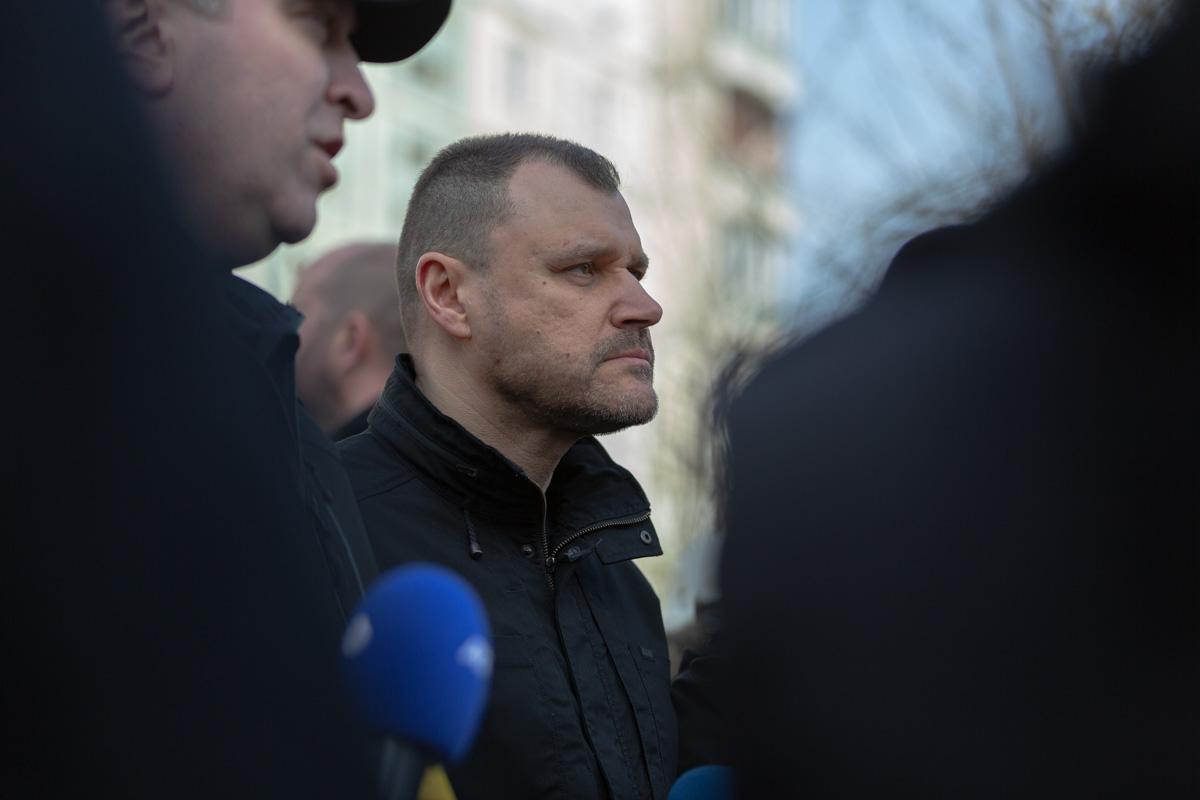
During the war, the National Guard, border guards, the State Emergency Service and the National Police perform extremely difficult tasks to protect the state, rescue people from rubble and work in the de-occupied territories. Do you have any fundamental comments on their work?
There are no fundamental remarks, but any system needs control and correction in the organization of work. In order for a large system such as the Ministry of Internal Affairs to function, we have to make adjustments constantly.
When forming the “Guard of Offensive”, for example, a lot of changes were made. There were inaccuracies, errors, but we corrected them very quickly.
Moreover, we often form tasks and influence the processes that are caused precisely by the war and the change in the operational environment.
The adjustments were, for example, related to a power outage in winter. All forces free from participation in hostilities were involved precisely to ensure the functioning of infrastructure facilities and the safety of our citizens.
Somewhere we lacked personnel, employees were leaving for the de-occupied territory, - they were replaced by other employees. And the large length of the borders and mined territories forced us to form new units of explosives, sappers.
There is always a human factor. We are all wrong — a minister, an ordinary policeman, a soldier. But the system is so configured that we quickly correct our mistakes, quickly respond to those inaccuracies in the work that we have allowed.
You know, it's like a car that needs technical inspection and maintenance. For the system to work, constant control of the mechanisms is required. We constantly check these mechanisms, check the clock between all units that are part of the system of the Ministry of Internal Affairs.
I believe that today the system works quite correctly.
Are you satisfied with the work of the services of the Ministry of Internal Affairs, which directly contact the Ukrainians, providing services and, in fact, also form the attitude of people to the whole system?
I have some comments about the services of the Ministry of Internal Affairs. First of all, this concerns the services provided by the departments of the Main Service Center of the Ministry of Internal Affairs.
To date, an issue that concerns almost every citizen of Ukraine has matured - the purity and transparency of passing theoretical and practical exams on driving vehicles. We want to minimize the obtaining of a driver's license without appropriate training and without the appropriate clean passing of these exams.
So for July of this year we plan to start changes in the work of the service centers of the Ministry of Internal Affairs. We conducted an audit of the centers of the Ministry of Internal Affairs: now there are 148 of them in Ukraine, and after optimization there will be 55 such points.
We want our services to be of sufficient quality and transparent so that every citizen can have a transparent system of appealing against the actions of employees of the service centers of the Ministry of Internal Affairs, including those who conduct theoretical and practical exams.
Classes where theoretical exams will be taken will be equipped by the end of this year with appropriate cameras that will prevent the existence of so-called “blind zones”, where another person can be located and provide “other services and advice”.
There will also be facial identification of each citizen who comes to take the exams. In addition, we want to give every citizen the opportunity to independently master the theory of traffic rules or with a tutor, that is, it will not be necessary to go to a driving school. The main thing is the transparency of exams.
People with disabilities are ready to travel to a particular locality by mobile service centers of the Ministry of Internal Affairs.
By the end of this year, we plan to equip about 150 cars with 360-degree cameras that can show the entire interior - to see the student, instructor, tablet, possible violations and clues. These cars will be equipped with trackers that will determine the route of movement, there will also be a full audio recording from the car interior.
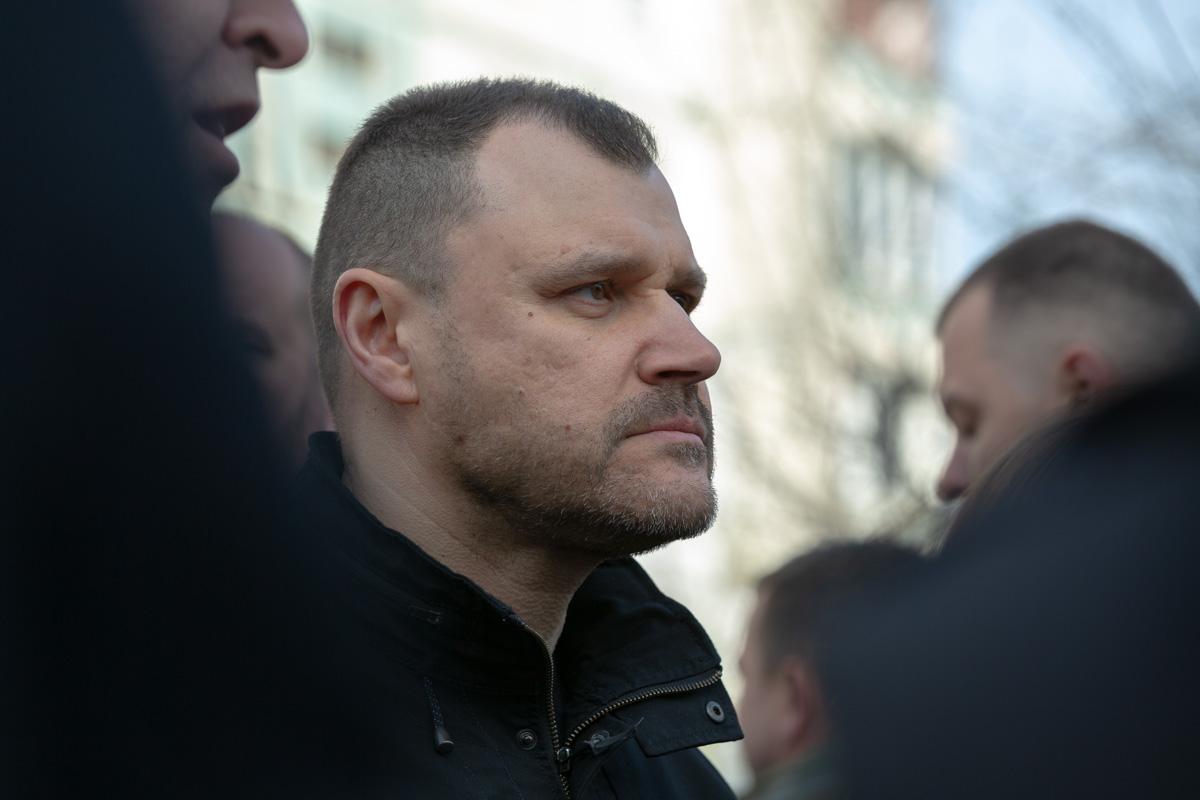
Do you understand that there can be strong resistance to such innovations? It's no secret that you can buy a driver's license, this is a serious business. Do you expect “sticks in the wheels”?
Yes, we expect. And we are ready for it. I will tell you that this position was supported by the leadership of the state - to minimize the possibility of any corruption risks related to the provision of the services of the Ministry of Internal Affairs.
Do you believe that you can, if not eradicate, then reduce corruption to a minimum?
Yes, I believe. We translate services into numbers. This minimizes the contact of employees of the service centers of the Ministry of Internal Affairs with citizens. And control over the passing of these exams.
It is much more difficult to control 148 service centers throughout Ukraine than 55 - in cities.
Who exactly will control?
We are creating an appropriate supervisory monitoring unit in the Ministry of Internal Affairs, which will be engaged in checking corruption facts, about which we will receive information.
All personnel of the service centers of the Ministry of Internal Affairs will be checked for reliability, and in those service centers of the Ministry of Internal Affairs that will remain working at the end of the year, we want to see exactly people who have no complaints. We will change part of the management of the service centers of the Ministry of Internal Affairs.
I can say that we will do everything in our power to solve this problem as much as possible by the end of the year.
Is there anything else interesting about the services planned?
Already in September, with the Ministry of Digital, we plan to transfer the entire process of buying and selling cars to a digital version - to Action. You will need only a seller and two smartphones with them.
We eliminate the mandatory technical expertise - people will not need to stand in lines, give possible bribes — technical expertise will remain only at the first registration of the car and at the request of the car buyer who wants to check the technical condition of the car.
What else? Registration of cars by car dealerships is already in June. A person comes to a car dealership, buys a car and receives a vehicle registration certificate and license plate there. That is, a citizen will not need to come to the service center of the Ministry of Internal Affairs.
Moreover, we cancel transit license plates, of which about one and a half million were issued a year. A transit number can be issued only if a citizen himself wants to drive on a transit number, for example, from Kiev to Uzhgorod, and register a car there.
In August, we plan to introduce online purchase of license plates. Each citizen will be able to check what signs are available, book them online for 10 days and purchase at a convenient time.
And will there be any conditional chatbots where people can provide information, complain if something is wrong?
I think so. The monitoring unit, which I said, will monitor information in social networks and messengers, where they complain about the work of one or another of our units.
We believe in this ambitious project. We have a clear plan and schedule to follow.
In some cases, we will need to make changes to the legislation. I think that in about six months we will be able to carry out our legislative initiatives together with the Verkhovna Rada.
Does it all require additional funding?
No. Part of the funds will be earned by business entities, that is, shops that sell cars and will provide these services.
If we reduce part of the service centers of the Ministry of Internal Affairs, respectively, we will save on rent, on utility bills. We need to purchase about 70 new cars in the near future, which we will equip and use during the practical exams for obtaining a driver's license.
In continuation of the topic of services. How are documents currently issued to Ukrainians who are abroad?
Today, DP “Document” operates in several countries in a stationary and mobile version. In Poland — Warsaw, Krakow, Gdansk, Wroclaw. In Istanbul, Turkey, there are two mobile points. Also in Slovakia - in Bratislava, in the Czech Republic - in Prague, migration centers were opened in Germany - in Cologne and in Berlin. And also in Spanish Valencia.
What kind of services can Ukrainians get abroad?
Issuance or replacement of id card or passport, insurance, exchange of driver's license. These points work as front offices: information is processed in Ukraine, documents are produced and sent to the citizen.
Does the opening of centers depend on the number of Ukrainians in a particular country?
Yes, from the concentration of Ukrainians, as well as from accessibility. People can come to Poland, for example, from Germany or from the Baltic countries.
Let's talk about the future. What needs to be done now so that after our victory Ukrainians feel safe - physically and mentally?
We are talking about millions of people who have been forced to leave their homes. The fact that most children study remotely. The social, economic problems caused by the war force us to prepare for the first day after the victory.
First of all, this concerns the criminogenic situation. We are well aware that our soldiers will return from the front, and the burden of war will be on them for many years to come — physically and morally. The war has been making itself felt for many decades. In the first decade, it is critical.
Therefore, today we are preparing a comprehensive document - it will be either a strategy or a law on how the country will live after the war, how we should build and maintain a safe environment in the middle of our country.
And here we are not only talking about the so-called police security. We are talking about a safe stay in educational institutions, on the streets, in shopping centers, at railway stations and at bus stops - we are also talking about the mental safety of citizens.
Those thousands of soldiers who return from the front must feel social support, psychological, must feel that they are needed by the state. This requires jobs, requires attention to their treatment, their rehabilitation. It is necessary that everyone who returns from the front feels that there is a person who deals with them.
In the Ministry of Internal Affairs, we have created a fundamentally new unit, which is engaged in social rehabilitation. The first thing we started with was the registry. We need to know who in the system of the Ministry of Internal Affairs - many, thousands of people - was injured and who died. We do not forget either our wounded people or the families of the dead.
In this base it will be displayed where he was wounded, in which unit he served, what kind of wound. This information will only be open to doctors and to a soldier or police officer.
After the treatment of the fighter, we organize his rehabilitation, prosthetics. It takes six months, for example, or a year.
In the event that he is demobilized for health reasons, he goes to a small town or village and, unfortunately, does not receive the necessary medical care there. And here there is a risk at 25-30 years of serious loss of health. To prevent this from happening, the system of the Ministry of Internal Affairs and the entire system of medical provision of the country must work for each of our military.
Therefore, we are now forming such a base, we attract the appropriate specialists to this, we recruit to the services that deal with the social rehabilitation of those servicemen who have been injured and lost limbs, for example, and cannot continue to serve in operational positions, we create jobs for them.
It is very important that the military after being wounded, after the operation, immediately receive help and support, understand that he will not be abandoned tomorrow, then he will work for the state. And it does not matter whether he will serve in the system of the Ministry of Internal Affairs or the Ministry of Defense - he has a future.
This is the future we must ensure for every military and for the whole country.
This requires the human resource of the state, financial, material.
This “Safe Country” law, which we are currently working on, just speaks of human-centricity. If the principle of human-centricity is embedded in all our strategies, concepts, in any legislative act, then we have a future. And our society will be filled with understanding of each other and help.
We want the Ministry of Internal Affairs to become such a pioneer in this concept. I am sure that we will succeed.






